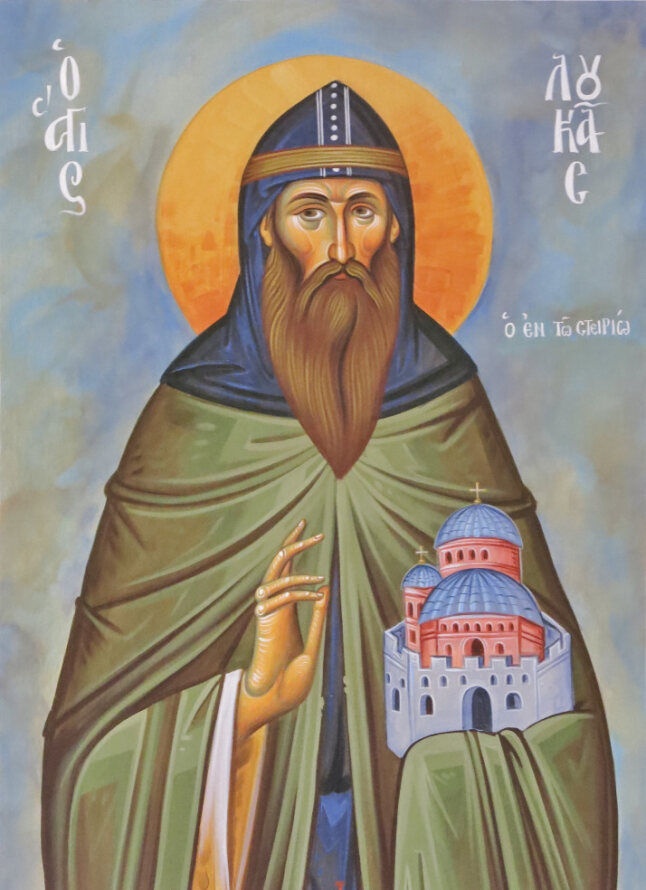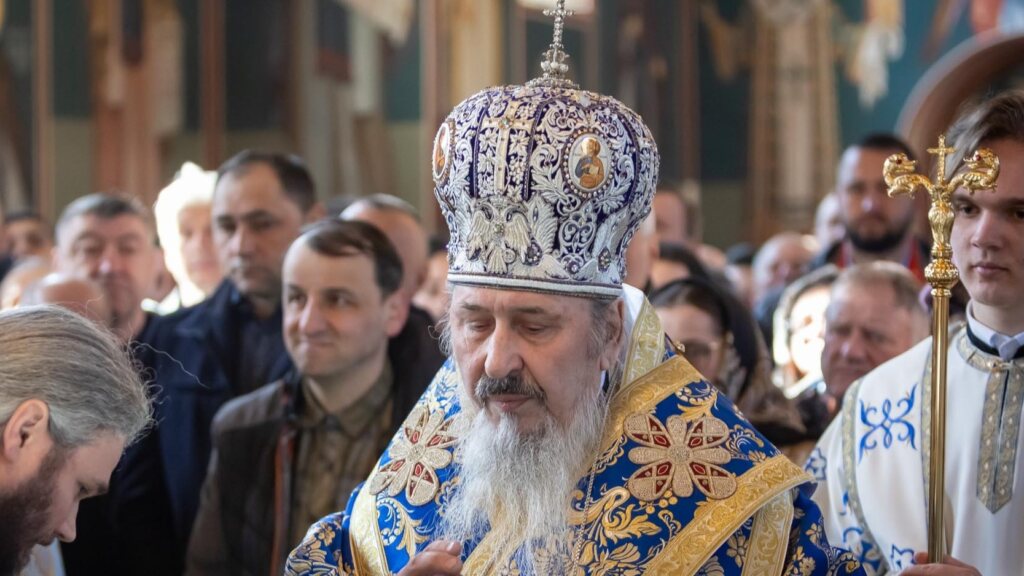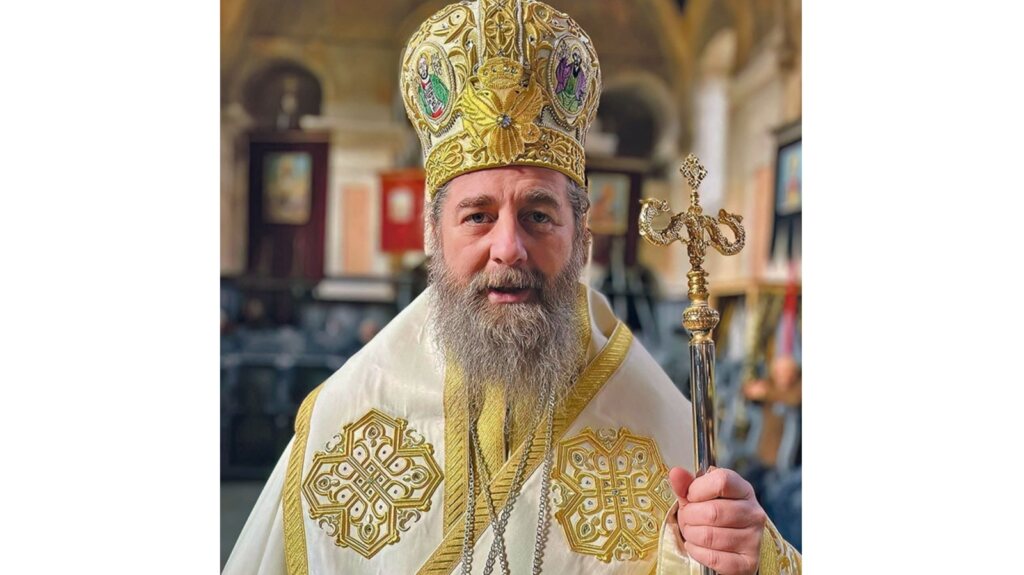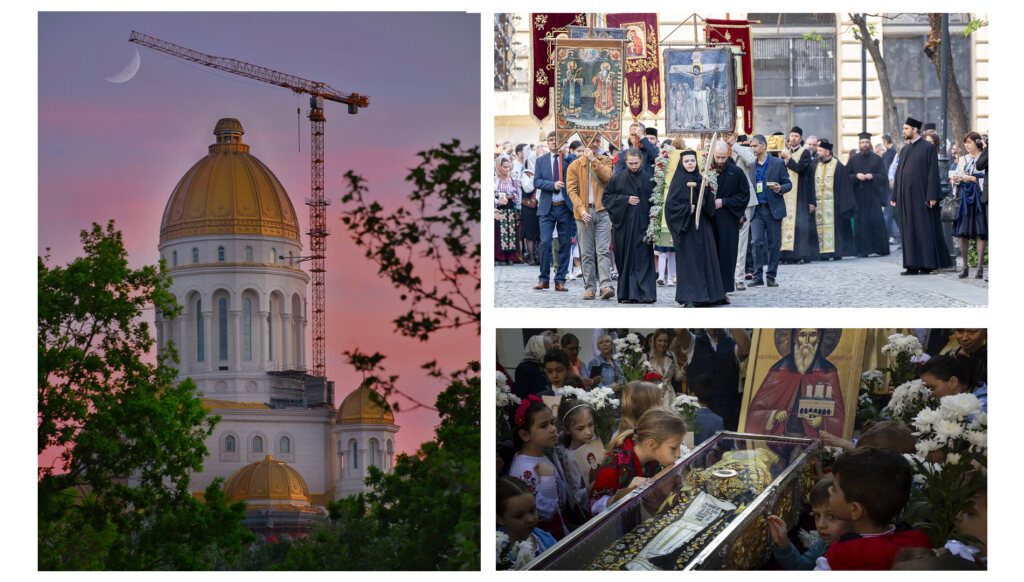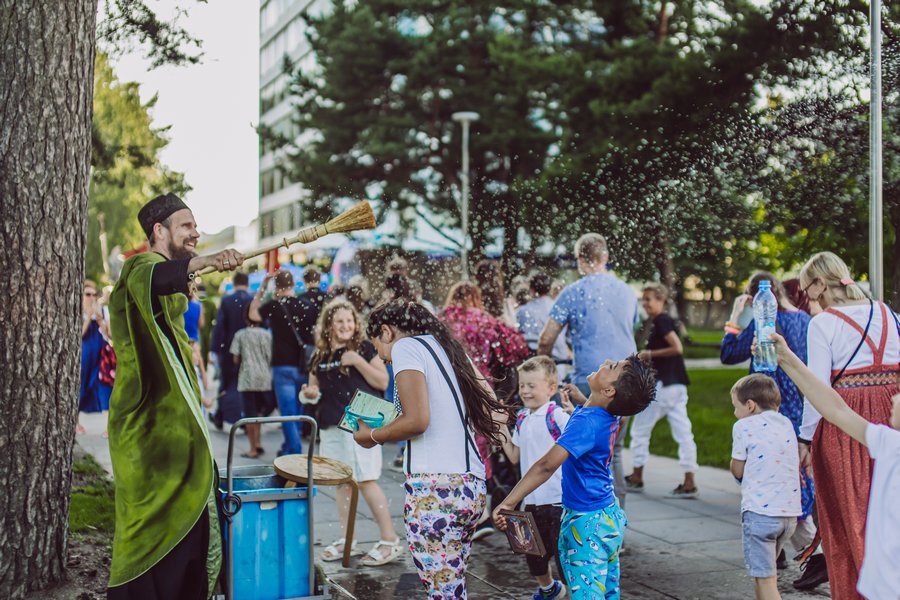Orthodox Calendar – February 7
Saint Parthenius, Bishop of Lampsacus
He was a native of the city of Melitoupolis (in northwestern Asia Minor), where his father Christopher served as deacon. The youth did not receive adequate schooling, but he learned the Holy Scripture by attending church services. He had a good heart, and distributed to the poor the money he earned working as a fisherman.
Filled with the grace of God, Saint Parthenius from age eighteen healed the sick in the name of Christ, cast out demons and worked other miracles. Learning of the young man’s virtuous life, Bishop Philetus of Melitoupolis educated him and ordained him presbyter.
In 325, during the reign of Constantine the Great, Archbishop Achilles of Cyzicus made him bishop of the city of Lampsacus (Asia Minor). In the city were many pagans, and the saint fervently began to spread the faith in Christ, confirming it through many miracles and by healing the sick.
The people began to turn from their pagan beliefs, and the saint went to the emperor Constantine the Great seeking permission to tear down the pagan temple and build a Christian church in its place. The emperor received the saint with honor, gave him a decree authorizing the destruction of the pagan temple, and provided him with the means to build a church. Returning to Lampsacus, Saint Parthenius had the pagan temple torn down, and built a beautiful church of God in the city.
In one of the razed temples, he found a large marble slab which he thought would be very suitable as an altar. The saint ordered work to begin on the stone, and to move it to the church. Through the malice of the devil, who became enraged at the removal of the stone from the pagan temple, the cart overturned and killed the driver Eutychian. Saint Parthenius restored him to life by his prayer and shamed the devil, who wanted to frustrate the work of God.
The saint was so kind that he refused healing to no one who came to him, or who chanced to meet him by the wayside, whether he suffered from bodily illnesses or was tormented by unclean spirits. People even stopped going to physicians, since Saint Parthenius healed all the sick for free. With the great power of the name of Christ, the saint banished a host of demons from people, from their homes, and from the waters of the sea.
Once, the saint prepared to cast out a devil from a certain man, who had been possessed by it since childhood. The demon began to implore the saint not to do so. Saint Parthenius promised to give the evil spirit another man in whom he could dwell. The demon asked, “Who is that man?” The saint replied, “You may dwell in me, if you wish.”
The demon fled as if stung by fire, crying out, “If the mere sight of you is a torment to me, how can I dare to enter into you?”
An unclean spirit, cast out of the house where the imperial purple dye was prepared, said that a divine fire was pursuing him with the fire of Gehenna.
Having shown people the great power of faith in Christ, the saint converted a multitude of idol-worshippers to the true God.
Saint Parthenius died peacefully and was solemnly buried beside the cathedral church of Lampsacus, which he built.
Troparion, tone 4:
In truth you were revealed to your flock as a rule of faith, an image of humility and a teacher of abstinence; your humility exalted you; your poverty enriched you. Hierarch Father Parthenius, entreat Christ our God that our souls may be saved.
Saint Luke of Hellas
He was a native of the Greek village of Kastorion. The son of poor farmers, the saint from childhood had toiled much, working in the fields and shepherding the sheep. He was very obedient to his parents and very temperate in eating. He often gave his own food and clothing to the poor, for which he suffered reproach from his parents. He once gave away almost all the seed which was needed for planting in the fields. The Lord rewarded him for his charity, and the harvest gathered was greater than ever before.
As a child, he prayed fervently and often. His mother saw him more than once standing not on the ground, but in the air while he prayed.
After the death of his father, he left his mother and went to Athens, where he entered a monastery. But through the prayers of his mother, who was very concerned about him, the Lord returned him to his parental home in a miraculous manner. He spent four months there, then with his mother’s blessing he went to a solitary place on a mountain called Ioannou (or Ioannitsa). Here there was a church dedicated to the holy Unmercenaries Cosmas and Damian, where he lived an ascetical life in constant prayer and fasting. He was tonsured there by some Elders who were on pilgrimage. After this, Saint Luke redoubled his ascetic efforts, for which the Lord granted him the gift of foresight.
After seven years on Ioannou, the saint moved to Corinth because of an invasion of the Bulgarian armies. Hearing about the exploits of a certain stylite at Patras, he went to see him, and remained for ten years to serve the ascetic with humility and obedience. Afterwards, the saint returned again to his native land and again began to pursue asceticism on Mount Ioannou.
The throngs of people flocking there disturbed his quietude, so with the blessing of his Elder Theophylactus, Saint Luke went with his disciple to a still more remote place at Kalamion. After three years, he settled on the desolate and arid island of Ampelon because of an invasion of the Turks. Steiris was another place of his ascetic efforts. Here brethren gathered to the monk, and a small monastery grew up, the church of which was dedicated to the Great Martyr Barbara. Dwelling in the monastery, the saint performed many miracles, healing sicknesses of soul and of body.
Foreseeing his end, the saint confined himself in a cell and for three months prepared for his departure. When asked where he was to be buried, the monk replied, “Throw my body into a ravine to be eaten by wild beasts.” When the brethren begged him to change these instructions, he commanded them to bury his body on the spot where he lay. Raising his eyes to heaven, he said, “Into Thy hands, O Lord, I commend my spirit!”
Saint Luke fell asleep in the Lord on February 7, 946. Later, a church was built over his tomb. Myrrh flowed from his holy relics, and many healings occurred.
Troparion, tone 4:
O God of our Fathers, ever dealing with us according to Your kindness; do not withdraw Your mercy from us, but by their intercessions, direct our lives in peace.
